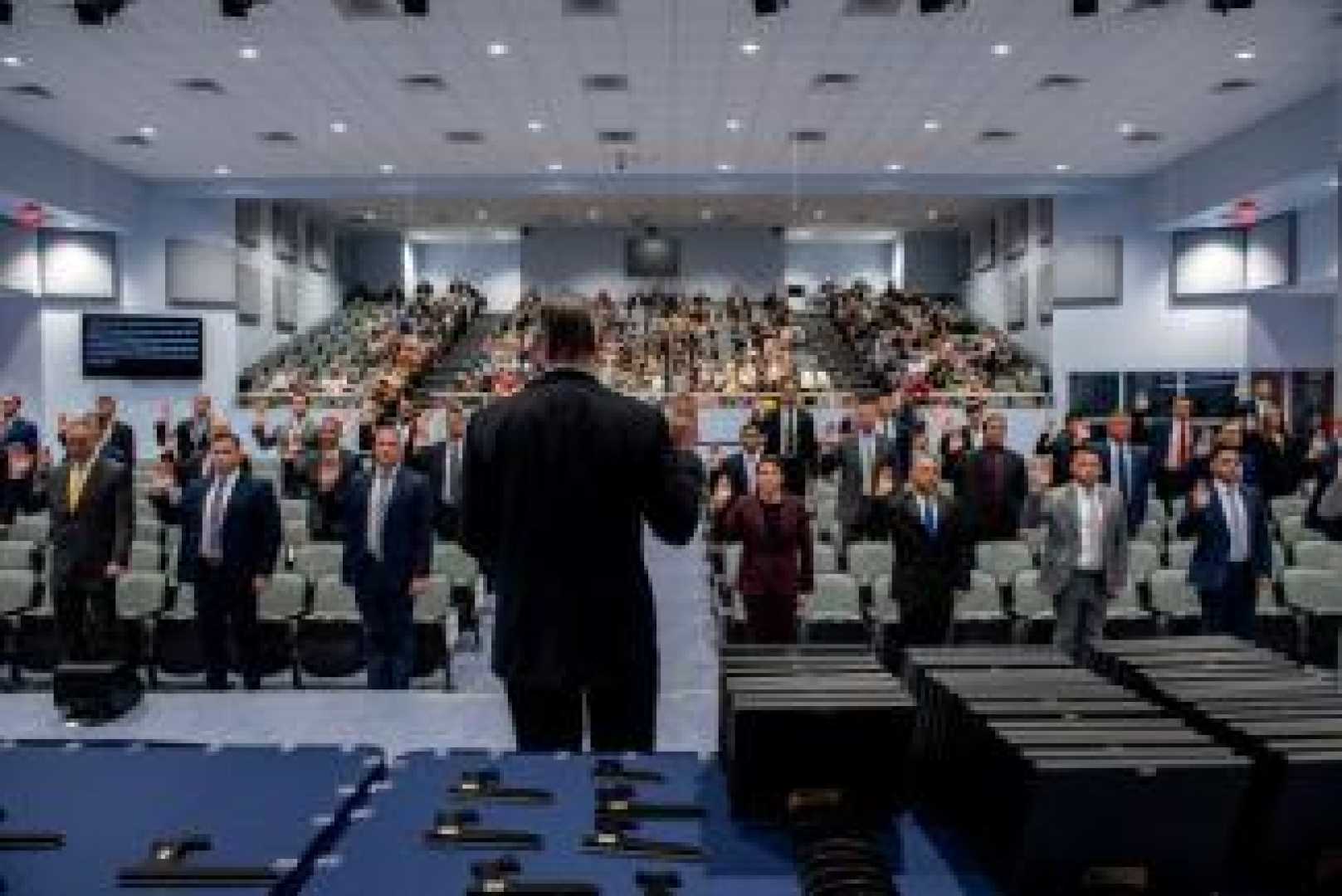Politics
US Marshal Involvement Sparks Legal Battle Over Government Agency Control

Washington, D.C. — In an unprecedented move, the Department of Government Efficiency (DOGE) led by Elon Musk on Thursday utilized the U.S. Marshals to assert control over the U.S. African Development Foundation (USADF), resulting in imminent legal ramifications. The agency’s head, Ward Brehm, has initiated a lawsuit against Musk and key DOGE personnel following their physical attempt to gain access to the agency’s headquarters.
On Wednesday, five DOGE employees and Peter Marocco, the deputy acting head of USADF, were reportedly denied access to the building by security, which sparked a potential confrontation. Security staff at the USADF were instructed to follow Brehm’s directives, preventing the team from entering. In a letter addressed to USADF staff, Brehm emphasized the importance of adhering to established protocols: “In my absence, I have specifically instructed the staff of USADF to adhere to our rules and procedure of not allowing any meetings of this type without my presence,” he wrote.
Brehm continued, stating, “Until these legal requirements are met, Mr. Marocco does not hold any position or office with USADF, and he may not speak or act on the Foundation’s behalf.” Following the thwarted attempt, Musk and Marocco returned on Thursday with the U.S. Marshals, successfully entering a building that lacked any staff at the time, according to a government source.
Hours after the incident, Brehm filed a lawsuit in U.S. District Court alleging that Marocco and the DOGE team had issued threats against the security personnel who prevented access. The lawsuit also claimed that Marocco threatened to involve U.S. Marshals and Secret Service agents if they were further denied entry. “Their threats were unsuccessful,” the lawsuit stated.
The escalating confrontation highlights the tensions surrounding Trump’s executive orders issued in February, which labeled USADF and three other agencies as “unnecessary” and subject to possible termination. Established by Congress in 1980, USADF has been instrumental in funding grassroots organizations that aid marginalized populations in Africa. From 2019 to 2023, the agency distributed over $141 million in grants to support 1,050 community enterprises, positively impacting 6.2 million individuals.
Democratic members of the House Foreign Affairs Committee expressed their concerns in a letter to President Trump last month, stating, “Any attempt to unilaterally dismantle the USADF through executive action violates the law and exceeds the constitutional limits of executive authority.” While DOGE surfaced victorious in its immediate tactical maneuver by gaining access to USADF, Brehm’s legal suit raises significant questions regarding the agency’s future.
This legal dispute between DOGE and USADF underscores a broader concern over the implications of executive power and the actions taken by presidential appointees. Observers now wonder whether this legal challenge could ultimately protect the agency or if it merely delays what some view as the inevitable dissolution of USADF.












